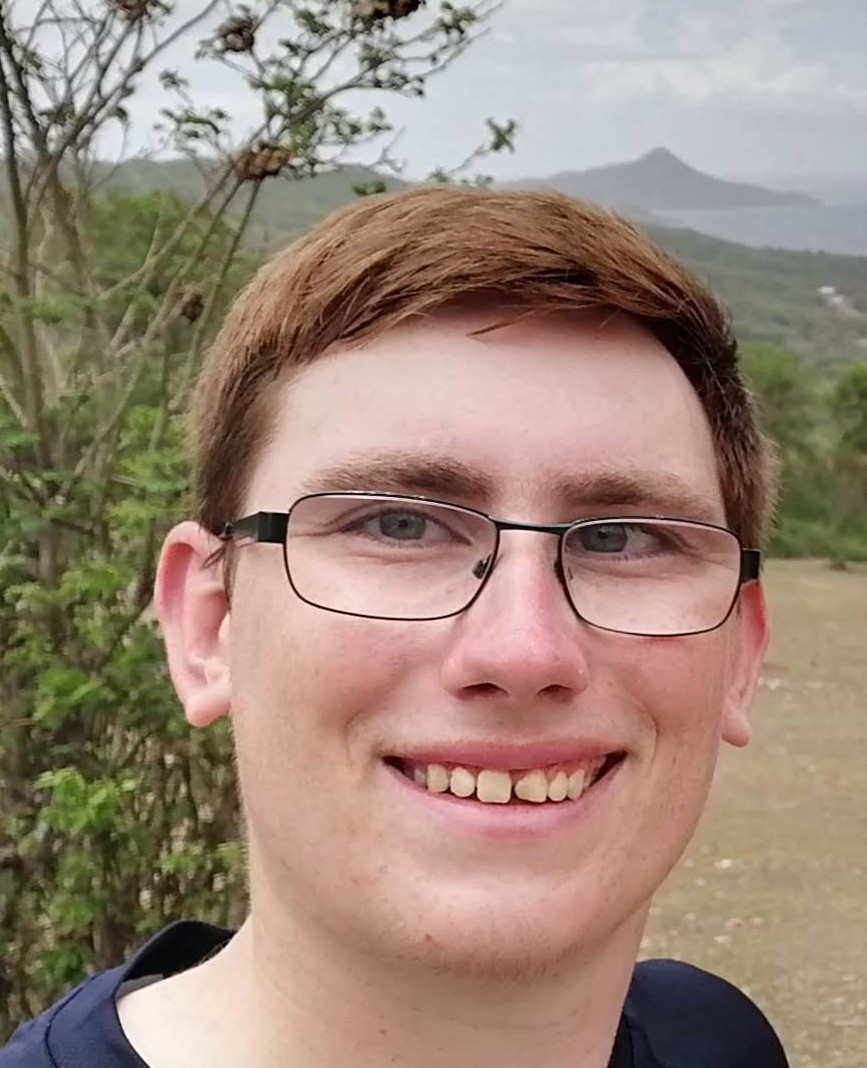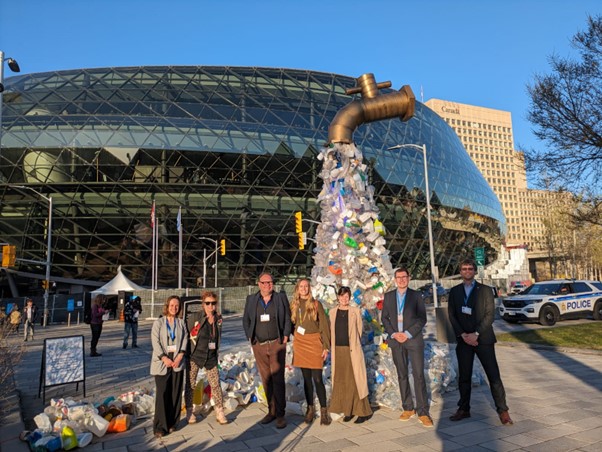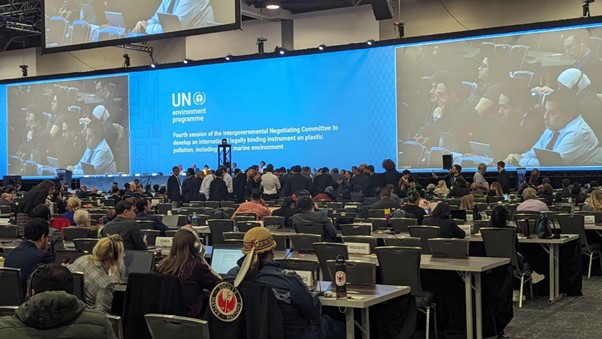
The fourth round of UN global plastics treaty negotiations end with some progress, but not enough to deliver the ambitious treaty the world needs in the allotted time if a vocal minority of oil-producing countries continue to undermine any attempt to discuss upstream measures that might threaten their profits. Sam Winton breaks down the options for breaking the deadlock when the INC reconvenes in Busan this November.
A marathon final day of INC-4 finally ended in the early hours of Tuesday morning and now, after some much needed sleep I am ready to share my reflections on the events of the session’s final 24 hours. While much had already been achieved this week, the session was always going to be judged by the outcomes delivered today. Would the committee drive through critical intersessional work, or would we once again separate for 6 months without managing to achieve the key objectives set out by the Chair at the start of the week, most critically:
- Advance and streamline the revised text of the instrument
- Decide on any intersessional work required between the fourth and fifth sessions of the committee
As we commenced the final day, the schedule was for an extended morning session for subgroups to meet, continuing their line by line deliberations of the streamlined text. The contact groups would then meet at 16.00, with the closing plenary commencing at 19.00. Subgroup 1.1 completed their work in quick order and, by lunchtime had completed the line by line negotiations of the provisions under their remit. This subgroup has shown particularly impressive progress and is significantly ahead of the others. However, with much work still to do, Subgroup 1.2 overran dramatically and after a mammoth 8 hour session, were forced to suspend their work for this INC with 3 ½ provisions still to conduct line by line deliberations on. As I had already noted this week, this subgroup has a significantly greater workload than others in Contact Group 1, many of which are highly controversial. Subgroup 1.3 also has a further 3 provisions to conduct line by line discussions on. When contact groups finally met at 18.00, I attended the meeting of Contact Group 2 to hear about its progress for the week. Despite a faster start, this group has made significantly less progress than Contact Group 1. Both of it’s subgroups have successfully completed a readthrough of all elements of co-chairs initial streamlined text, before authorising the co-facilitators to attempt a further streamlining. However, many of those attempts were rejected by members with the subgroups choosing to revert to the previous version of the text. Furthermore, Subgroup 2.1 is yet to conduct any line by line discussions and Subgroup 2.2 has only completed line by line discussions on 1 provision. In the reports back it was also clear that there is little convergence on most issues being discussed.
The meeting of Contact Group 2 also revealed significant displeasure from members over the way the Subgroups have been convened. In a theme I have been noticing all week, members complained about inconsistent approaches being applied by differing subgroups leading members to believe they were not receiving equal treatment. In Contact Group 2, concepts have also been removed from the text without the consent of members, subsequently having to be re-added, and a request was made by a member to forward the text to the next session as it stands, with no further interference from the co facilitators. It was clear that this request indicated a lack of confidence in the process. When dealing with complex and controversial discussions it is essential that clear and transparent processes are adopted. Where this fails to occur, as was the case this week, well intentioned members can lose faith in the process and those seeking to disrupt are provided with a golden opportunity to do so. While there have been instances of particularly strong leadership shown by co-facilitators this week, notably in Subgroup 1.1’s quick progress and Subgroup 1.2’s ability to remain on track despite challenges on Saturday night, the overall process has been confused and inconsistent, and improvements are needed at INC-5.

The closing plenary, which finally commenced shortly after 20.30, was always anticipated to be challenging and it certainly lived up to that billing. On intersessional work, the Chair re-proposed the approach outlined on Sunday evening:
- 2 Ad Hoc intersessional open ended expert groups would be established to conduct work between INC-4 and INC-5, commencing immediately,
- Expert Group 1 will focus on matters related to means of implementation – to be informed by Contact Group 2,
- Expert Group 2 will focus on criteria for chemicals and polymers of concern, and product design – to be informed by Contact Group 1.
The Chair then opened the floor for comments, with the proceeding 2 ¼ hours being spent hearing the views of members, mostly along the same lines as the previous night. After hearing the members’ views, the chair paused the plenary for further consultations, with the break ultimately lasting over 90 minutes. On resumption the chair re-made his proposal for a 3rd time before a chaotic period of intense discussions ensued. Saudi Arabia, still unhappy with the mandate of Expert Group 2, reiterated a previous position that the group should focus on product design for recyclability and reuse, with Iran subsequently agreeing this position and stating that this approach had been supported by many members in the earlier consultations and they no longer felt that the Chair’s proposal was acceptable. This prompted a familiar sight of late crisis talks erupting between members in an attempt to rescue the situation. With intersessional work at an impasse the chair moved onto other, largely procedural agenda items which passed without incident, including the important establishment of a legal drafting group for INC-5. However these items received scant attention from the floor as a large huddle of senior negotiators grew in one section of the room. With consultations still ongoing, the Chair again paused the plenary, this time for a further 40 minutes. When the Chair resumed the plenary, 5 ½ hours after it first commenced and with the time approaching 2am we finally had a long awaited agreement on intersessional work, with Iraq and Brazil announcing that the committee wished to form 2 Ad Hoc intersessional open ended expert groups with the following mandates:
- Expert Group 1 – develop an analysis of potential sources and means that could be mobilised, for implementation of the objectives of the instrument, including options for the establishment of a financial mechanism, alignment of financial flows, and catalysing finance
- Expert Group 2 – identify and analyse criteria and non-criteria based approaches with regards to plastic pollution and chemicals of concern in plastic products and product design, focusing on recyclability and reusability of plastic products and their uses and applications.

The final agenda items, including closing statements, passed without major event and the 4th Session of the Intergovernmental Negotiating Committee to Develop an International Legally Binding Instrument on Plastic Pollution, Including in the Marine Environment (INC-4) was closed at 03.17 on Tuesday 30th April 2024.
Reflecting on the week it would be hard to describe it as anything other than challenging. Divisions remain as deep as ever with some members stating increasingly entrenched views that the treaty should be focussed only on waste management with no upstream or legally binding measures. We are also desperately short on time.
On Objective 1 of the session, to advance negotiations on the text to allow it to be finalised at INC-5, it is certainly true that the text has advanced. However it has not advanced anywhere near enough. Contact Group 1 still has numerous provisions to undertake line by line discussions on, and Contact Group 2 has barely started that step. Undertaking those discussions with the current methodology would take several days and this time simply does not exist in the process with only 7 days of negotiations remaining. Despite spending days in this session streamlining the text, we are once again adding new concepts and further complexity. If we are to have a treaty in 7 days time it feels far too late to be doing this.
On Objective 2, to agree intersessional work, this has been achieved after failed attempts at 2 previous INCs. Despite a late challenge, and many things being left out, several topics will be discussed in the intersessional period. However, I am concerned about the cost. In order to reach an agreement, members have had to agree to demands from the Gulf States to focus on recyclability and reusability of products. This concession sets a dangerous precedent that takes upstream measures off the table and focuses on downstream solutions which we know are not sufficient. In the dying days of treaty negotiations, this is going to be a difficult concession to roll back. I also wonder if this could have been avoided. In leaving discussions until so late on the last night, the like minded group were put into an extremely strong negotiating position. Agree to our demands or you will get no intersessional work at all. Addressing this earlier in the week, or even earlier in the day by concluding contact groups sooner could have made a difference.
I no longer believe that, with the current approach, it will be possible to deliver an ambitious treaty, with agreements on the majority of elements in the current text, by the end of 2024. Intersessional work provides information to the committee but does not include textual negotiations and a late attempt by the EU to adjourn INC-4 and resume later in the year for an INC 4.2 was quickly shut down by the like minded group. We must therefore consider the options moving forward.
- Cede to the lowest common denominator and create a Paris Agreement 2.0, setting nationally determined targets for waste management and abandoning any attempt at upstream measures. While this seems achievable, it would represent an abject failure and should never be considered an acceptable outcome in my opinion.
- Proceed on the current course and see what happens. With time spent on the opening of the 5th session, agreeing rules of procedure, and completing line by line deliberations on the text, it is hard to see how we would have more than 2-3 days to actually negotiate an extremely complex text, most of which is currently in brackets. Someone more optimistic than me may think this is possible but I believe this would certainly see us move into an INC-6 and beyond, failing to deliver a treaty by the end of 2024 and risking years of delay.
- Change course and consider radical new methods to deliver some form of ambitious treaty text. With no time to spend several days on line by line discussions it seems likely that this would need to be a framework agreement with most or all of the provisions remaining but several of them being developed in the treaties early years. While this is not as good as a well developed treaty from the outset it would allow us to start and strengthen.
Ultimately, there are a lot of good people working extremely hard to deliver an ambitious treaty. This includes the Chair, secretariat staff, members and observers, all of whom share a common goal. However, we have set ourselves an incredibly difficult task. The ambitious timeline would have been difficult to meet if all members were aligned but we must accept reality. There are members in the room who’s national interest lies in disrupting and delaying the process. This is not a surprise. It has been evident for a long time and Kuwait, on behalf of the like minded group provided a roadmap to their strategy last Tuesday when they said we ‘must not rush to an agreement [and] should emphasise quality over expediency’. We cannot bury our heads in the sand and hope that we will win them over. Therefore we must find ways to change the picture, creating methods to accelerate the process. If all avenues have been exhausted to do this then we may fail to deliver a treaty by the end of 2024, but this should be a last resort and if it does happen, there must be a clear plan to avoid a 6 month delay turning into 6 years. The representative of Fiji closed the session by recalling a proverb which is commonly spoken among Indigenous Peoples. ‘We do not inherit this earth from our forefathers, we borrow it from our children’. UNEA Resolution 5/14 was a landmark moment in securing the future of those children. However the process is currently dangerously off course and urgent, corrective action is desperately needed.
BIO
I am a postgraduate researcher working for the Revolution Plastics Institute at the University of Portsmouth since its creation in 2020. In 2023 I commenced my PhD studies titled ‘To what extent has the structure and implementation of the INC process facilitated the development of an effective Global Plastics Treaty?’ at the University of Portsmouth and the University of Surrey. This research will focus on how the structure and implementation of the INC process impacts the treaty’s outcome, consider how the inclusion of stakeholders in the process influences a fair and just treaty, and investigate the implications of the final text for members. With a background in environmental hazards and community preparedness, my main research focus is working with communities and a broad range of stakeholders to tackle environmental challenges. I have also conducted work with international organisations with a view to creating policies to tackle the global plastics problem, and facilitate sustainable development.

Exactly what I needed! You just saved me several hours. Thanks!